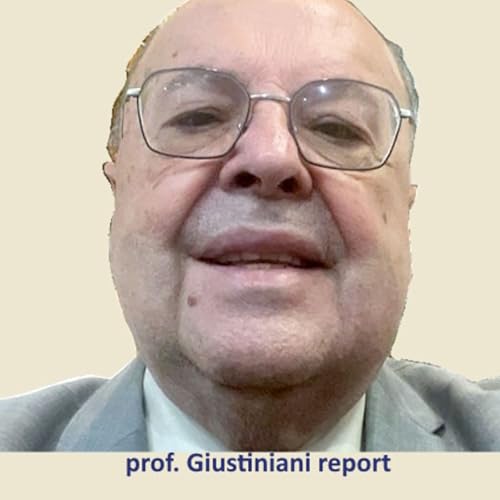Drinking Bishops: Wine, Vice and the Voice of Caesarius of Arles
Arles, 5th century AD. The "Little Rome of Gaul" is a thriving city exporting wine, oil and grain throughout the empire. Its vineyards produce prestigious reds for elites and ordinary wines for workers and slaves. But behind this commercial success lies a problem that would shake the late imperial Church: rampant drunkenness among the clergy. In this episode of the Giustiniani Report, we explore the Sermons of Caesarius of Arles, bishop, monk and reformer who dedicated his preaching to combating what he called an increasingly widespread "devil's poison": the vice of immoderate drinking, particularly among bishops and high-ranking clerics. Caesarius minces no words. In his Sermons 46 and 47, he denounces bishops who organize sumptuous banquets instead of preaching, taking money from the poor to set up feasts lasting until dawn. He describes clerics forcing guests to drink "in the name of saints and angels," prelates vomiting and needing to be carried to bed by others, shepherds more interested in managing vineyards than caring for souls. Using deliberately "down-to-earth" language – suitable for farmers and the poor of his flock – Caesarius employs vivid, brutal images: he compares drunkards to "stinking sewers," describes staggering bodies and clouded eyes, denounces the practice of eating excessively salty foods just to drink immoderate quantities of wine. But there's more. Caesarius places ebrietas – habitual drunkenness – alongside the gravest sins, quoting Saint Paul: "Nor will drunkards inherit the kingdom of God." The Council of Agde in 506, which he himself presides over, explicitly prohibits drunkenness to clerics, providing for excommunication or corporal punishment. This episode takes us to 5th-6th century Arles, city of two rivers traversed by barbarian invasions, wars between Franks and Goths, dominations by Visigoths, Burgundians and Ostrogoths. Here, among the necropolises of the Alyscamps – the same fields Van Gogh would paint centuries later – Caesarius fights his moral battle. We'll discover how Western monasticism, unlike its Eastern counterpart, was more "permissive" about wine use, inheriting biblical topoi of the vine and branches. We'll see how Augustine of Hippo – whose main popularizer in Gaul was Caesarius – drank wine at every meal and how his monastic rule provided wine "for those who want it" on weekends. But above all, through the words of this forgotten and rediscovered bishop, we'll understand how fundamental concepts of classical theology passed into the Middle Ages, how the ethics of food intertwined with moral theology, and how surprisingly current problems – substance abuse, clergy corruption, conflict between earthly wealth and spiritual poverty – already afflicted the late ancient Church. A fascinating journey through the history of wine, the Church and the customs of an era of transition, where the Eucharistic chalice could transform into the chalice of excess
Show More
Show Less
 39 mins
39 mins Dec 13 202535 mins
Dec 13 202535 mins 12 mins
12 mins 15 mins
15 mins 13 mins
13 mins Nov 5 20253 mins
Nov 5 20253 mins 8 mins
8 mins 14 mins
14 mins
